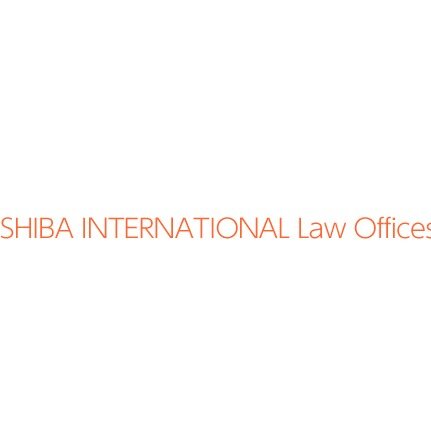Best Speeding & Traffic Ticket Lawyers in Tokyo
Share your needs with us, get contacted by law firms.
Free. Takes 2 min.
List of the best lawyers in Tokyo, Japan
About Speeding & Traffic Ticket Law in Tokyo, Japan
In Tokyo, Japan, speeding and traffic ticket laws are governed by the Road Traffic Act. This legislation outlines the rules and regulations that all drivers must follow, including speed limits, traffic signals, and road markings. Penalties for violations can range from fines to demerit points on the driver's license, and in severe cases, imprisonment. Enforcement typically involves various technologies such as speed cameras and police patrol checks. The point-based Keiho (penalty points) system is a key feature of this legal area, aimed at promoting safe driving habits.
Why You May Need a Lawyer
Although many traffic infractions can be handled without legal representation, there are instances where a lawyer can be invaluable. For example, if you are facing severe penalties such as license suspension or criminal charges due to a traffic violation, a lawyer can provide legal defense and advice. Furthermore, in situations where the ticket might affect employment, insurance rates, or immigration status, legal guidance ensures appropriate management of the case. Lawyers are particularly helpful for handling disputes regarding the circumstances of the infraction or when language barriers present a challenge to international drivers.
Local Laws Overview
The local laws in Tokyo are consistent with Japan's national Road Traffic Act. Notably, speed limits vary depending on the type of road and are strictly enforced. Additionally, the law mandates zero tolerance for drinking and driving. The Blue Form ticket issued for minor offenses can usually be settled by paying a fine, whereas the Red Form ticket for more serious violations requires a mandatory court appearance. It’s also important to be aware that accumulating too many Keiho points can result in mandatory training courses or license suspension.
Frequently Asked Questions
1. What should I do if I receive a speeding ticket in Tokyo?
After receiving a speeding ticket, you can choose to pay the fine or contest the ticket in court. If you intend to contest the ticket, seeking legal advice may improve your chances of a favorable outcome.
2. How much are fines for speeding in Tokyo?
Fines vary based on the degree by which the speed limit was exceeded. It is essential to check the specifics of your ticket or consult with legal authorities for accurate information.
3. Will a speeding ticket in Tokyo affect my driving record?
Yes, traffic violations can affect your driving record through the accumulation of Keiho points. Excessive points can lead to stricter penalties.
4. Can I attend a defensive driving course to reduce the penalties?
In some cases, attending a certified defensive driving course can mitigate the penalties. However, this option depends on the nature of the offense and is subject to the judge's discretion.
5. How long do points from a speeding ticket stay on my record?
Points typically stay on the record for a set period, which may range from two to three years, depending on the violation and the total points accumulated.
6. Can I get a traffic ticket if I’m riding a bicycle?
Yes, cyclists must adhere to road rules, and violations can result in fines and penalties equivalent to those faced by motor vehicle drivers.
7. What is the process for contesting a traffic ticket in Tokyo?
Contesting a traffic ticket usually involves a court appearance. You may present evidence and argue your case, or have a lawyer represent you.
8. Are traffic laws in Tokyo different from the rest of Japan?
Traffic laws in Tokyo align with national Japanese laws, although local regulations and enforcement practices may vary slightly.
9. How can international drivers understand their rights regarding traffic tickets in Japan?
International drivers should consult with legal professionals or seek resources from their embassy to understand their rights. English-language assistance may be available.
10. Can a lawyer help reduce the fine or points against my license?
A lawyer may be able to negotiate a reduction of fines or points, especially if there are mitigating circumstances or if it's the driver's first offense.
Additional Resources
For further information and assistance, the Japan Automobile Federation (JAF) provides resources on road rules and driving in Japan. The Tokyo Metropolitan Police Department’s Traffic Bureau is responsible for enforcement and can also offer guidance. Expatriate drivers may find support from their respective embassies.
Next Steps
If you require legal assistance for speeding or traffic tickets in Tokyo, start by gathering all relevant documentation related to your traffic violation. Next, contact a lawyer who specializes in traffic law, ideally one with experience assisting foreigners if you are not fluent in Japanese. You can seek recommendations or search online legal directories to find suitable representation. Acting swiftly is crucial, as there may be deadlines to respond to the ticket or prepare for a court appearance.
Lawzana helps you find the best lawyers and law firms in Tokyo through a curated and pre-screened list of qualified legal professionals. Our platform offers rankings and detailed profiles of attorneys and law firms, allowing you to compare based on practice areas, including Speeding & Traffic Ticket, experience, and client feedback.
Each profile includes a description of the firm's areas of practice, client reviews, team members and partners, year of establishment, spoken languages, office locations, contact information, social media presence, and any published articles or resources. Most firms on our platform speak English and are experienced in both local and international legal matters.
Get a quote from top-rated law firms in Tokyo, Japan — quickly, securely, and without unnecessary hassle.
Disclaimer:
The information provided on this page is for general informational purposes only and does not constitute legal advice. While we strive to ensure the accuracy and relevance of the content, legal information may change over time, and interpretations of the law can vary. You should always consult with a qualified legal professional for advice specific to your situation.
We disclaim all liability for actions taken or not taken based on the content of this page. If you believe any information is incorrect or outdated, please contact us, and we will review and update it where appropriate.









